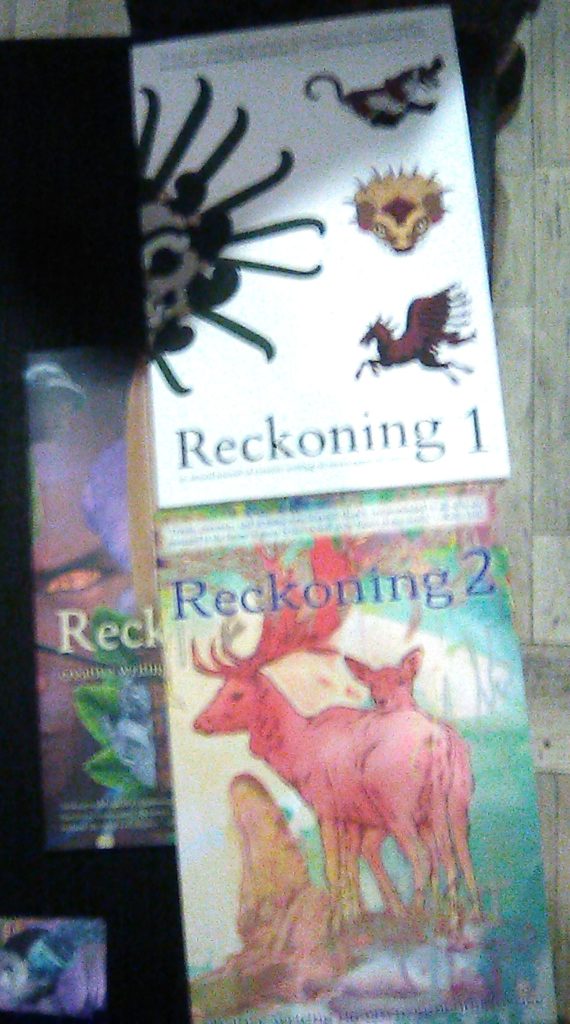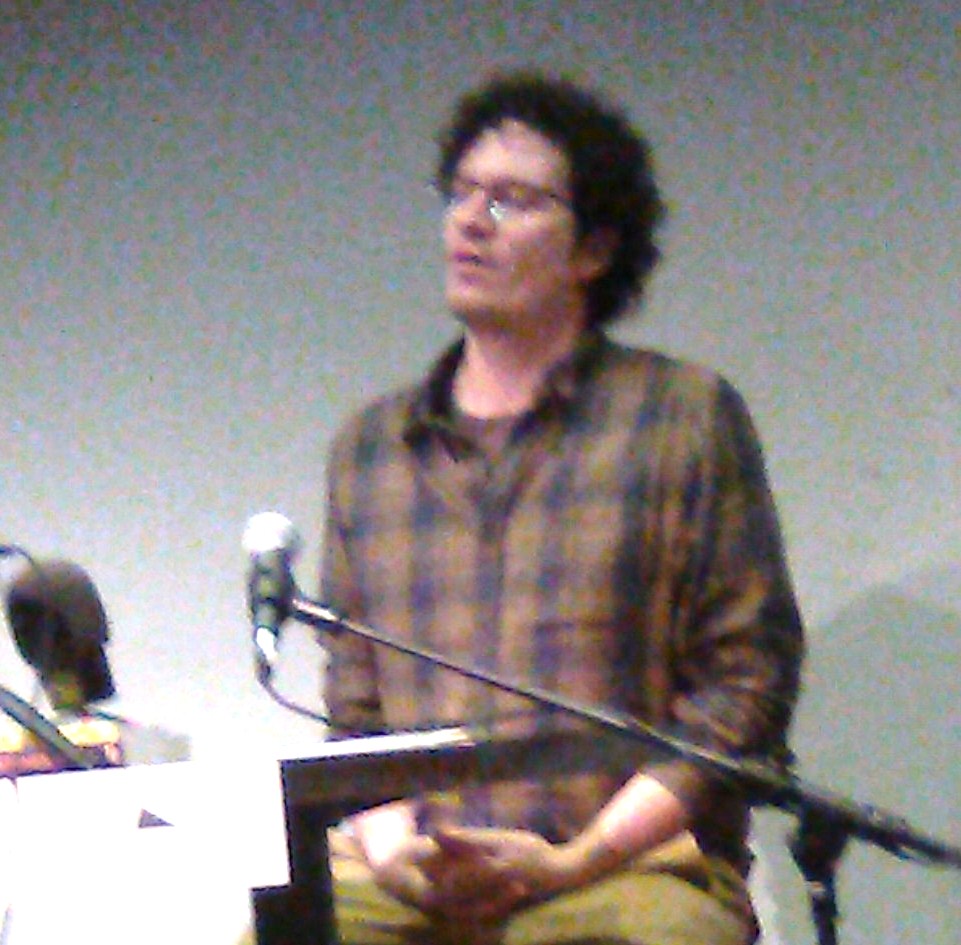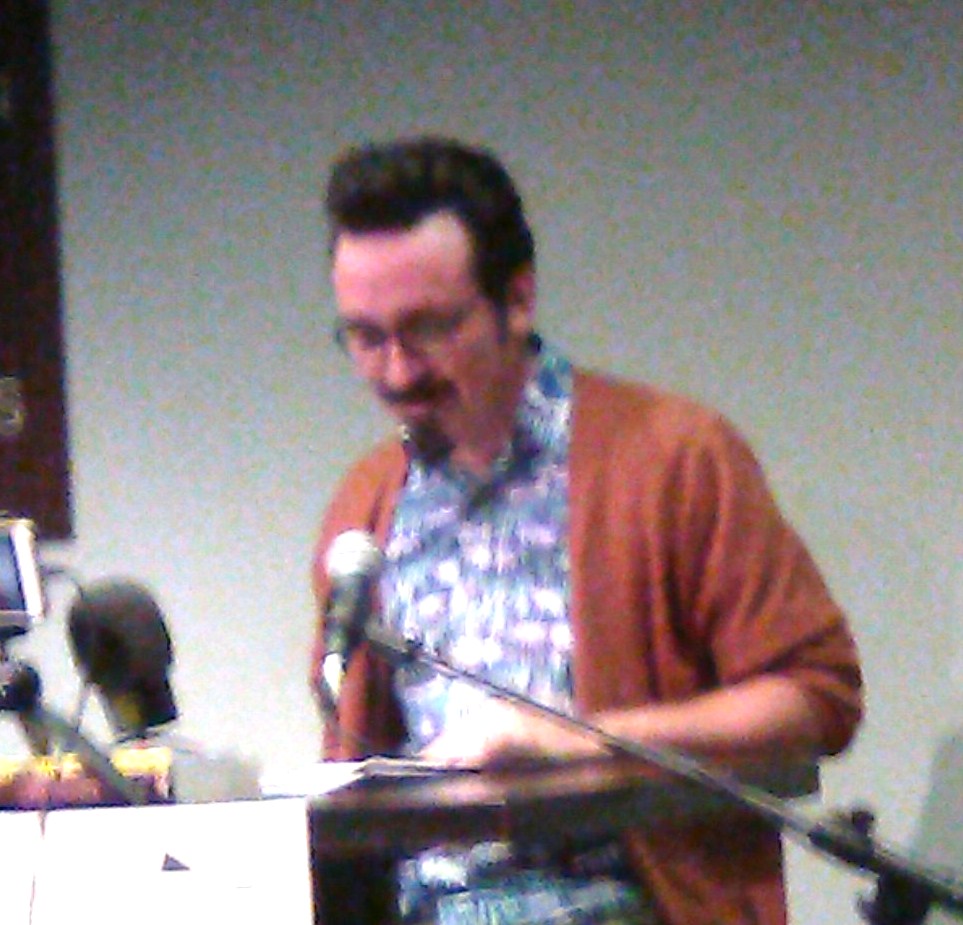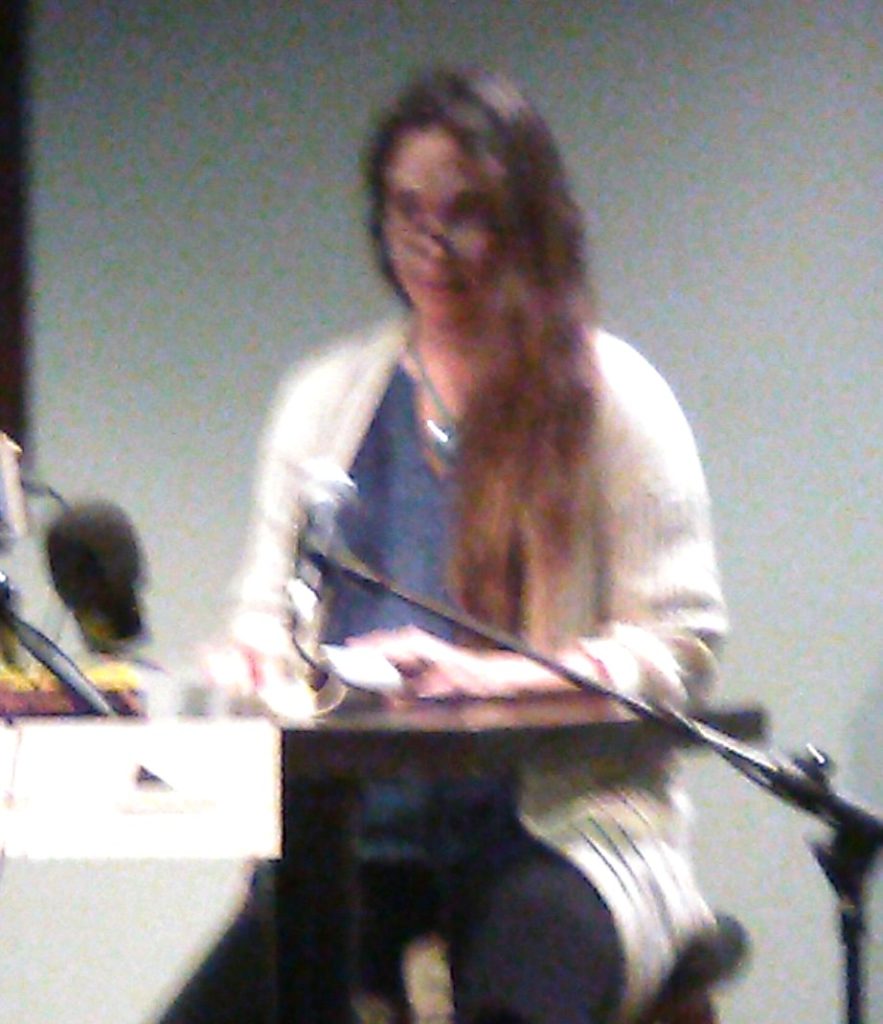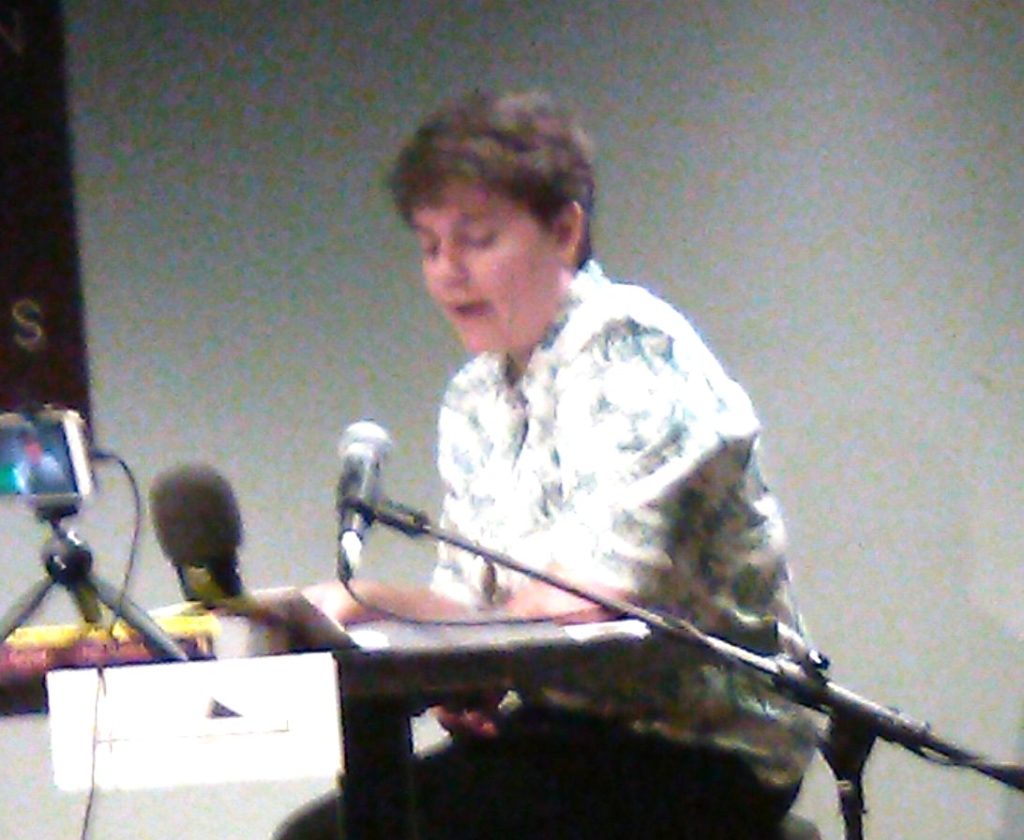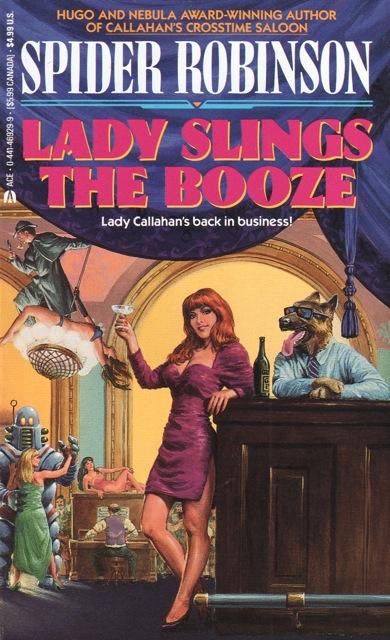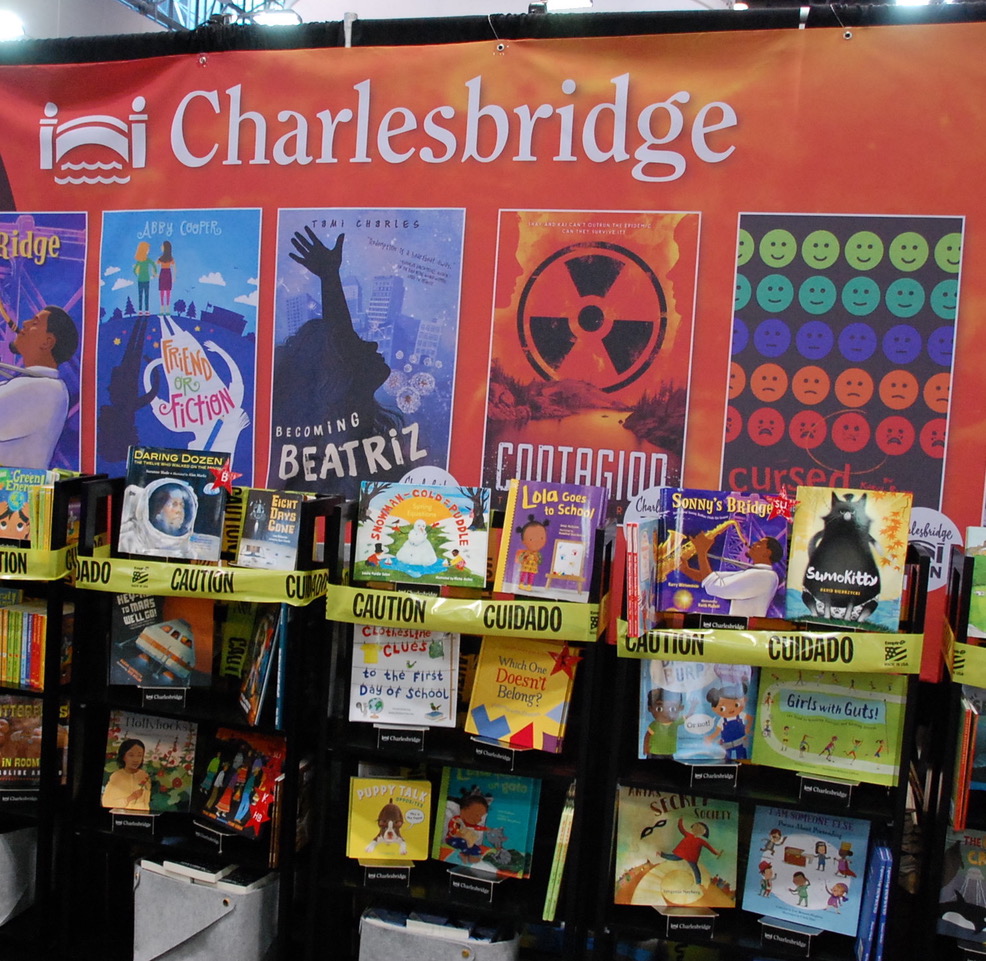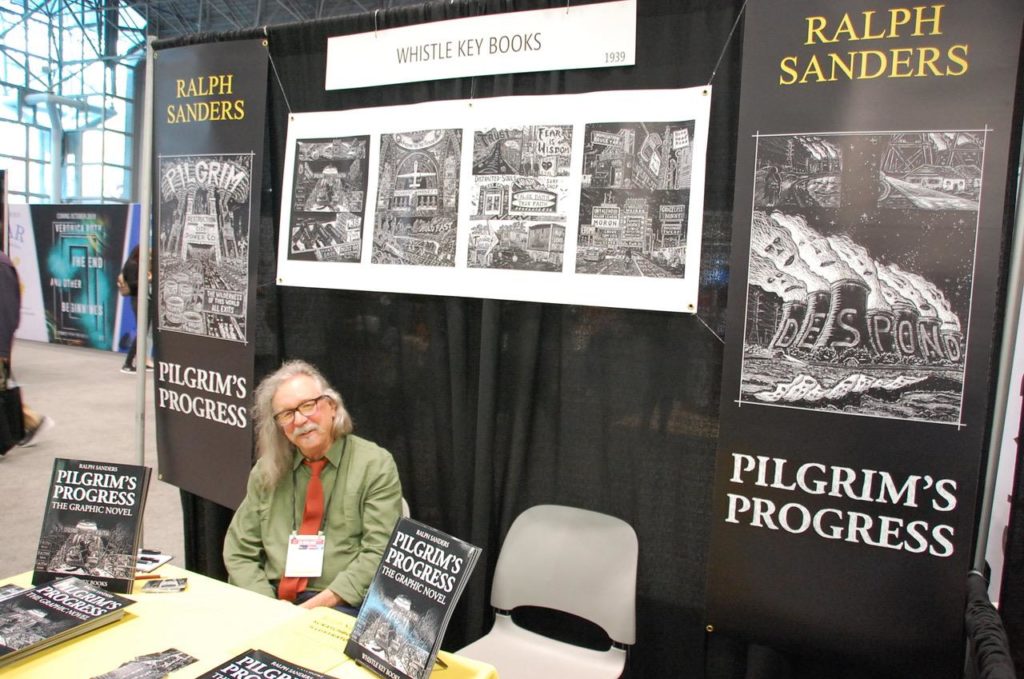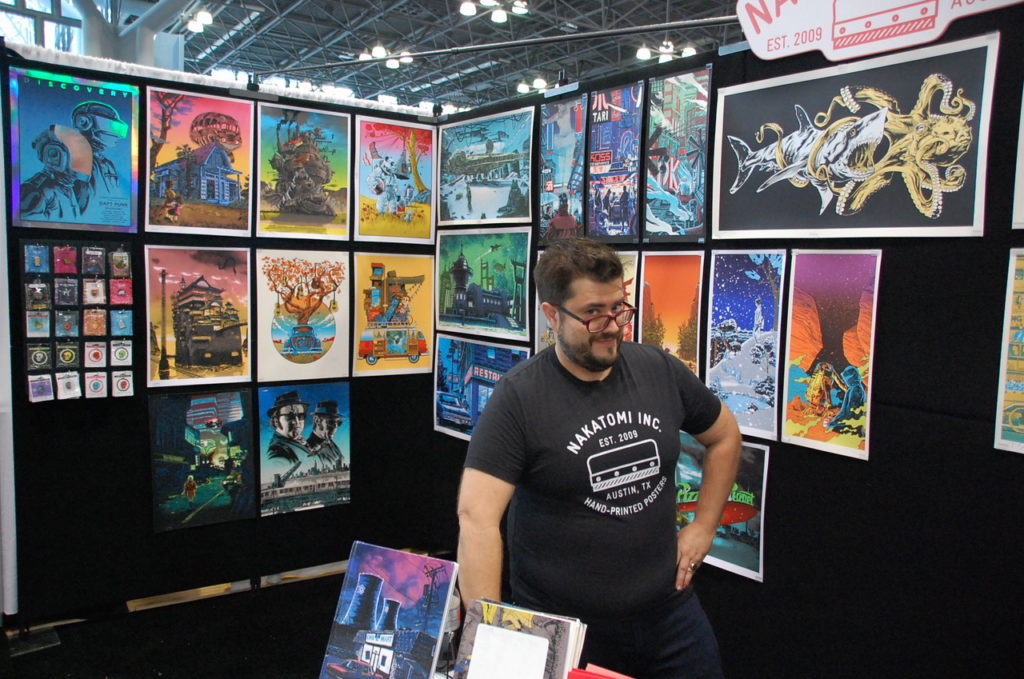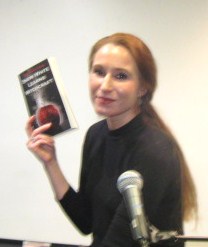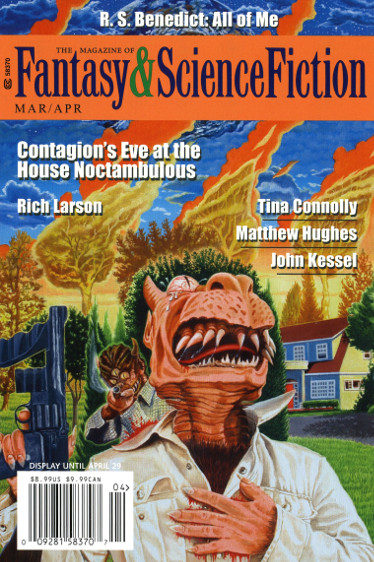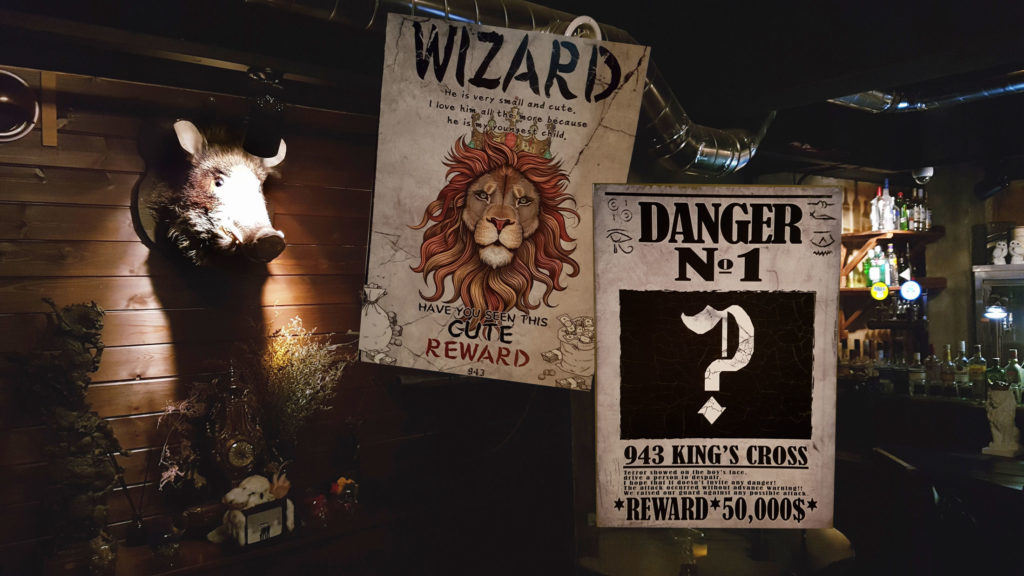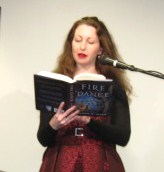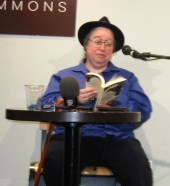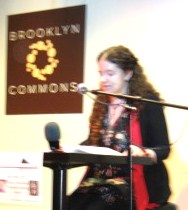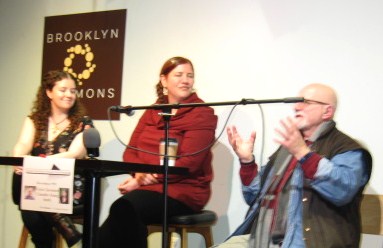(1) BEST TRANSLATED BOOK AWARDS. The winners of the 2019 Best Translated Book Awards were announced May 29. I believe neither is genre. (However, Sofia Samatar, past winner of a World Fantasy Award, is among the judges.)
Slave Old Man, written by Patrick Chamoiseau, translated (from the French and Creole) by Linda Coverdale, and published by The New Press, won for fiction. Of Death. Minimal Odes, written by Hilda Hilst, translated (from the Portuguese) by Laura Cesarco Eglin, and published by co-im-press, took the prize for poetry.
…Thanks to grant funds from the Amazon Literary Partnership, the living winning author and the translators will each receive $2,000 cash prizes…
The fiction jury included Pierce Alquist (BookRiot), Caitlin L. Baker (Island Books), Kasia Bartoszy?ska (Monmouth College), Tara Cheesman (freelance book critic), George Carroll (litintranslation.com), Adam Hetherington (reader), Keaton Patterson (Brazos Bookstore), Sofia Samatar (writer), Elijah Watson (A Room of One’s Own). The poetry jury included Jarrod Annis (Greenlight Bookstore), Katrine Øgaard Jensen (EuropeNow), Tess Lewis (writer and translator), Aditi Machado (poet and translator), and Laura Marris (writer and translator).
(2) SOUVENIR SEEKER OR ARMS
DEALER? LA Times columnist Mary
McNamara must learn new moves when she visits a new domain in the Magic
Kingdom: “Tense
and intense, Star Wars: Galaxy’s Edge is not your mother’s Disneyland”.
As a SoCal mom, I know what it takes to do Disneyland: water, sunscreen, sturdy walking shoes, lots of cash, phone, snacks and whatever other gear the age and Disney-geek demographic of the group demands.
Strollers, mouse ears, matching shirts, lanyards clanking with tradable pins, whatever; I’ve always had it covered, down to the Band-Aids, hand sanitizer and Advil.
But I never thought to pack a back story.
Within minutes of entering Galaxy’s Edge, the park’s brand-new “Star Wars”-themed land, I realized this was a hideous mistake.
“Are you looking for a job?” A young woman in native-Batuu garb asked in a low voice as she sidled up to my daughter and me.
“Um, no,” I said. “We’re looking for lightsabers.”
“Keep your voice down!” she said. “The First Order is everywhere. But Savi’s Workshop is right around the corner.”
I smiled in what I hoped was a knowing fashion and moved away….
(3) WORLDBUILDING.
Marie Brennan continues with “New
Worlds Theory Post: Exposition, Pt. 2” at Book View Café.
When we first hit the topic of worldbuilding exposition back in May, I discussed the exposition on the level of prose: how to work setting details into your sentences without putting a neon stop sign on them saying “HERE BE INFORMATION,” and how to use the surrounding context to make those details convey story as well as facts. That works on a small scale, but when you get to more complex matters, you often have to think larger in order to work them into the story.
One time-honored way to do this is with a naive protagonist: someone young, inexperienced, foreign, or otherwise unfamiliar with the situation at hand. They don’t have to be ignorant of everything, and in fact it can be annoying if they are — at least in fiction for adults. In kids’ literature and YA, a naive protagonist is often a natural choice….
(4) REALISM V. NUANCE. L.
Jagi Lamplighter Wright explains these paradoxical characters in “The
Paragon of Realism, Superheroes!” at Superversive SF.
… Reality is complicated, and it is the job of an author to reflect this. So, how does one do this? Simple, he has cause and effect function in a way that makes sense to the audience. For example, let’s talk about Superman.
One of the complaints made against Superman is that he is unrealistically good, that a normal person with his power would abuse it. To this I say, their definition of realistic is wrong. Their argument is that: since he has so much power, he must abuse it. The thing they don’t get is that by not abusing his power and being a good guy, he is making the D.C. universe more realistic. Just look at General Zod to see what I mean.
… There are many kings and presidents who use their power for good without abusing it, like Abraham Lincoln or George Washington, who was offered a crown but turned it down in favor of becoming president and then retired to his farm. It is not impossible that there could exist a man that could use his power for good without letting it control him. If there is such a man, then we as authors should write stories about him, for he is a hero. If Superman is this man, is it any wonder he can use his power without abusing it.
Just because he does good does not make him more or less realistic than any other hero in the D.C. universe….
…This kind of touch is what makes your story realistic, having the character make logical choices in accordance with his fantastic circumstances. His job is logical.
Another example of this is the Science Patrol from Ultraman. In the Ultraman universe, there are giant monsters, generally called Kaiju, which are practically walking natural disasters.
…In a later season, someone on the staff realizes something interesting: the monsters are not innately evil. They are wild animals, so maybe we should have one of our heroes try not to kill them. Out of this idea came Ultraman Cosmos, the warrior of compassion. This is also something that comes naturally from the premise because a complicated interaction with the Kaiju makes the world seem more realistic, even with the fantastic premise.
All of these ideas take a premise and bring it to its logical extreme. ‘Realism’ so called, does not. ‘Realism’ only shows one small part of the human experience, while real realism shows as much of the human experience as is needed for the story, which is what all good stories show.
(5) ODYSSEY SCHOLARSHIP. George
R.R. Martin announced Kyle
De Waal is the winner of this year’s Miskatonic Scholarship to the Odyssey
Writers Workshop in New Hampshire, given each year to a student working in the
area of Lovecraftian cosmic horror. The scholarship is funded by Martin.
This year’s winner is Kyle de Waal, who loves to write anything with a monster in it, especially cosmic horror with a bent towards YA-lit. He also enjoys tabletop games, mountain biking, and Greek and Roman history. He lives in Canada with his border collie who is named after a poetic device: Volta.
(6) TODAY’S BIRTHDAYS.
[Compiled
by Cat Eldridge.]
- Born May 31, 1895 — George Stewart. Author of Earth Abides which won the first International Fantasy Award in 1951. It’s worth noting that his novel Storm whichhad as its protagonist a Pacific storm called Maria prompted the National Weather Service to use personal names to designate storms. (Died 1980.)
- Born May 31, 1897 — Christine Hartley, better known as Christine Campbell Thomson. Best known for her horror anthologies published in the 1920s and 1930s. The first, Not at Night gave its name to the whole series, which ran to eleven volumes. In all, there were 170 stories including ones by Howard and Lovecraft, and, according to bibliographer Mike Ashley, a hundred of these came from Weird Tales. All of the fiction she wrote was done under the pen name of Flavia Richardson. Neither the anthologies or her fiction appear to be in print currently. (Died 1985.)
- Born May 31, 1907 — Peter Fleming. Elder brother of that Fleming. Among his works is a novel written in 1940, The Flying Visit about an unintended visit to Britain by Adolf Hitler. It’s apparently a comedy. The Sixth Column: A Singular Tale of Our Time is also genre though it is now Forgotten Literature as his other book. (Died 1971.)
- Born May 31, 1928 — Bryce Walton. Writer on Captain Video and His Video Rangers though I can’t tell you exactly what that means as IMDB lists the numbers of episodes he did as unknown. He also wrote for Alfred Hitchcock Presents including “The Greatest Monster of Them All” which is definitely genre. He wrote one SF novel, Sons of the Ocean Deeps, and has one collection of stories, “Dark of the Moon” and Other Tales. (Died 1988.)
- Born May 31, 1930 — Gary Brandner. He’s best known for The Howling trilogy. The first book was adapted quite loosely as into The Howling. Brandner’s second and third Howling novels have no connection to the movie series, though he was involved with writing the screenplay for the second Howling movie, Howling II: Your Sister Is a Werewolf. Who came up with that title? Howling IV: The Original Nightmare is actually the most faithful adaptation of his first novel hence the title. (Died 2013.)
- Born May 31, 1961 — Lea Thompson, 58. She’s obviously best known for her role as Lorraine Baines in the Back to the Future trilogy though I remember her first as Beverly Switzler in Howard the Duck as I saw Back to the Future after I saw Howard the Duck. Not sure why that was. Her first genre role was actually as Kelly Ann Bukowski in Jaws 3-D, a film I most decidedly did not see. If you accept the Scorpion series as genre, she’s got a recurring role as Veronica Dineen on it.
- Born May 31, 1968 — John Connolly, 51. Best known for his Charlie Parker noir crime series where his character solves mysteries by talking to dead. His Chronicles of the Invaders written with Jennifer Ridyard, his wife, are more traditional SF as is the Samuel Johnson series.
- Born May 31, 1976 — Colin Farrell, 43. I remember him first as Bullseye in the much dissed Daredevil film. (It wasn’t that bad.) He was in Minority Report as Danny Witwer. And I see he’s listed as being the third transformation of Tony in Terry Gilliam’s The Imaginarium of Doctor Parnassus. H’h. Now he was Peter Lake in Winter’s Tale, a takeoff of Winter’s Tale by Mark Helprin, a novel no film could do justice to. Oh, he’s Holt Farrier in Dumbo…
- Born May 31, 1995 — Jeremy Szal, 24. He says he was (probably) raised by wild dingoes. He writes about galactic adventures, wide-screen futures, and broken characters fighting for hope in dark worlds. He is author of the dark space-opera novel Stormblood out in February 2020, the first of a trilogy. His short fiction has appeared in Nature, Abyss & Apex, Lightspeed, Strange Horizons, Tor.com, The Drabblecast. He is the fiction editor for the Hugo-winning StarShipSofa, which once led to Harlan Ellison yelling at him on the phone. He carves out a living in sun-bleached Sydney, Australia. He loves watching weird movies, collecting boutique gins, exploring cities, and dark humour. Find him at http://jeremyszal.com/ or @JeremySzal
(7) COMICS SECTION.
Three stfnal installments of Bob the Angry Flower:
(8) MODERATELY GOOD OMENS. William
Hughes explains the flaws that keep the first episode from perfection: “’In
The Beginning,’ Good Omens struggles to let its more heavenly elements shine”
at AV/TV Club.
There’s a question that inevitably dogs (or maybe that should be hellhounds?) the production of any TV or cinematic adaptation of a popular book: How close do you hew to the original text—i.e., the stuff that presumably got people in the door in the first place—vs. softening or changing it for the natural rhythms of human speech? It’s a query that gets extra tricky when the original author and the person doing the adapting are one and the same, which might help explain why screenwriter Neil Gaiman has filled so much of the first hour of his new Amazon series Good Omens with long passages taken directly from his and Terry Pratchett’s 1990 book. …And yet, Good Omens’ pilot occasionally feels like sitting through the process of listening to a friend read you some of their well-crafted short fiction while an energetic, eye-catching slideshow plays—provided, of course, that your friend was Frances McDormand, and she was also pretending to be the voice of God.
(9) NEWS SCOOP. Delish discovered that “Baskin-Robbins
Is Adding Two Stranger Things-Inspired Ice Cream Flavors To The Menu”.
Earlier this week, BR announced two Flavors of the Month for June: Eleven’s Heaven and Upside Down Pralines. The first is a waffle cone-flavored ice cream (I know, WOAH) with chocolate-coated sugar cone pieces and chocolate icing. The latter is chocolate with praline pecans and chocolate caramel swirled in.
If you think those sound epic just wait, because there’s more:
- The Upside Down Sundae includes praline scoops and toppings on the bottom.
- The Demogorgon Sundae is served in a waffle bowl that “frightfully resembles” the monster.
- Byers’ House Lights Polar Pizza Ice Cream Treat is basically an ice cream and candy ‘za. It has a Snickers ice cream crust and topped with fudge and M&M’s to look like Christmas lights.
- USS Butterscotch Quarts are filled with butterscotch toffee ice cream and a toffee ribbon.
- Elevenade Freeze = ice cream + Minute Maid Lemonade.
(10) BOOK EXPO. “What
if they gave a Book Expo and no one came?” asks Andrew Porter, who shared his
photos of the autographing lines on
Wednesday afternoon, first day of the exhibits.
From Publishers Lunch (behind a paywall) — “Book
Expo Panels: Retailers, Breakfast Authors and More”:
As predicted, this year’s Book Expo is effectively a one-day show played out over three days. After a quiet start on Wednesday, Thursday at least has attendees filling the very wide aisles, spacious lounges, empty booth slots and open meeting rooms at a convention that is more profoundly than ever a downgraded, modest shadow of its former self. (It’s very sustainable, though; exhibitors are using generous lengths of plain pipe and drape, rented chairs, and simple printed panels over fancy fixtures and displays.) With a generally quiet line-up of panels as well, one Thursday afternoon that still offered some substance of note focused squarely on physical retail.
Publishers Weekly’s public article:
“BookExpo
2019: Slow Start to a Buzzy Show”
The noon opening for BookExpo on Wedesday led to a quiet start for this year’s fair. But as the day progressed, the crowd steadily built and by late afternoon, a palpable buzz began to fill the hall, as people lugged tote bags full of galleys and promotional swag.
Prior to the opening, more than 100 people, many of them book bloggers and independent authors, lined up to get an early start on the galley giveaways and literally dashed into the hall the moment the floor opened.
(11) MORE PORTER PHOTOS
FROM BOOK EXPO.
- For the YA near-future novel “Contagion,” Charlesbridge wrapped their display in Caution tape:
- Pilgrim’s Progress: The Graphic Novel. Porter says, “The artwork reminded me of Basil Wolverton…”
- Who knew? Dayglo and UV posters are back!
(12) SURPRISING STRIKEOUT.
Kat Hooper concludes “Record
of a Spaceborn Few: Third time’s not the charm” at Fantasy Literature.
…So many people love Becky Chambers’ WAYFARERS trilogy and all three books have been nominated for several awards. After reading the entire trilogy, it’s clear that it’s just not for me. I thought The Long Way to a Small, Angry Planet was a cool-sounding title, but the story was “like watching Barney & Friends while eating cotton candy.” I liked A Closed and Common Orbit even less, finding it dull and unchallenging. Both novels have very little plot or tension, but they do contain heart-warming scenes and sweet messages about cooperation, diversity, and other nice things.
Record of a Spaceborn Few has the same problem, but magnified….
(13) DYNAMIC DUO. Black Gate’s Elizabeth Crowens interviews
one of the “Power
Couples in the World of Speculative Fiction: Jim Freund and Barbara Krasnoff”.
(Unexpectedly, the NYRSF Reading Series is mentioned only in photo captions,
although their names appear on File 770
in connection with that more than anything else!)
Crowens: You guys are native Brooklyners, right?
Both: No.
Barbara: I’m the native Brooklyner. He’s from Queens.
Jim: I’m from Jackson Heights. She is from Canarsie… originally. It’s like the line from Captain America: Civil War when he meets Spider-man. Captain America is fighting him at the airport and says, “You’ve got heart, kid. Where are you from?” and Spider-man says, “Queens.” Captain America looks at him and says in a confrontational tone, “Brooklyn.”
(Laughs): That’s great.
Jim: Best line in the movie.
How did you guys meet?
Barbara: Online, basically.
(14) SUPPRESSING MALARIA. “GM fungus
rapidly kills 99% of malaria mosquitoes, study suggests” – BBC has the
story.
A fungus – genetically enhanced to produce spider toxin – can rapidly kill huge numbers of the mosquitoes that spread malaria, a study suggests.
Trials, which took place in Burkina Faso, showed mosquito populations collapsed by 99% within 45 days.
The researchers say their aim is not to make the insects extinct but to help stop the spread of malaria.
The disease, which is spread when female mosquitoes drink blood, kills more than 400,000 people per year.
Worldwide, there are about 219 million cases of malaria each year.
(15) PICK UP
AFTER YOURSELF. Here’s the ultimate good example when it comes to attempts
to sweep up orbital debris: “UK
satellite ‘sets sail’ for return to Earth”.
A British satellite in space has just “set sail” to return to Earth.
TechDemoSat-1 was launched in 2014 to trial a number of new in-orbit technologies but has now reached the end of its operational life.
To bring it out of the sky faster than would ordinarily be the case, it has deployed a “drag sail”.
This large membrane will catch residual air molecules at its altitude of 635km and pull TDS-1 quickly into Earth’s atmosphere where it will burn up.
There is a lot of interest currently in “clean space” technologies.
The orbital highways above the planet are set to become congested with thousands of spacecraft in the coming years, and serious efforts need to be made to tidy away redundant hardware and other space junk if collisions are to be avoided.
(16) INSTANT CLASSIC. That
old time edition is good enough for Matthew
Johnson:
Give me that old time purple prose
Those long sentences soothe the soul
I reminisce about the pros of old
And that old time purple prose
Just take those old novels off the shelf
I’ll read Lord Dunsany by myself
I want some adjectives, sweet and low
I like that old time purple prose
Don’t try to keep me to a word count
In ten minutes I’ll be past that amount
I’ll savour adverbs Bulwer-Lytton chose
In his old time purple prose
Call it bad writing, call it what you will
Edgar Rice Burroughs can thrill me still
With each dependent clause my hunger grows
For that old time purple prose.
[Thanks to
JJ, Martin Morse Wooster, Cath, Andrew Porter, Chip Hitchcock, Mike Kennedy,
John King Tarpinian, Carl Slaughter, and Cat Eldridge for some of these
stories. Title credit belongs to File 770 contributing editor of the day Jenora
Feuer.]
